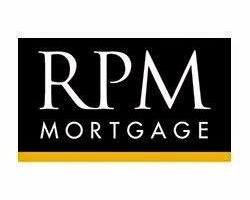
RPM CEO Erwin Robert Hirt to Pay Additional $1 Million Civil Penalty
WASHINGTON, D.C. – Today, the Consumer Financial Protection Bureau (CFPB) filed a complaint in federal district court against RPM Mortgage, Inc. and its CEO, Erwin Robert Hirt, for illegally paying bonuses and higher commissions to loan originators to incentivize them to steer consumers into costlier mortgages. The CFPB also filed a proposed order that, if entered by the court, would require RPM to pay $18 million in redress to consumers and a $1 million civil penalty, and would require Hirt to pay an additional $1 million civil penalty.
“RPM rewarded its loan officers for steering consumers into mortgages with higher interest rates,” said CFPB Director Richard Cordray. “Today we are putting an end to RPM’s unlawful practices and holding Robert Hirt personally responsible for his involvement in them.”
RPM Mortgage, Inc. is a residential-mortgage lender that is headquartered in California and operates about sixty branches across 6 states. In April 2011, RPM instituted a compensation plan that gave loan officers financial incentives to steer consumers into higher-rate mortgage loans. RPM provided its loan officers with different forms of compensation that were derived in part from the interest rates of the loans they closed.
The company sought to mask this interest-rate-based compensation by filtering it through so-called “employee-expense accounts.” RPM deposited profits from an originator’s closed loans – profits that were directly tied to the loans’ interest rates – into an expense account set up for the originator. RPM used the expense accounts to pay bonuses and higher commissions to its loan originators. The company also allowed loan originators to tap their expense accounts to offset interest-rate reductions or give credits to certain customers to avoid losing the transactions to competitors. RPM paid or financed millions of dollars in unlawful bonuses, pricing concessions, and supplemental commissions.
Starting in 2011, the Loan Originator Compensation Rule has prohibited incentivizing loan originators to steer consumers to costlier mortgages. The CFPB has enforced the rule since July 21, 2011. The CFPB found that RPM’s compensation plan incentivized loan officers to saddle consumers with costlier loans to increase the loan officers’ compensation. The CFPB also found that Hirt, RPM’s CEO, was responsible for managing the design and implementation of this illegal compensation plan. Specifically, the CFPB found that RPM and Hirt violated the Loan Originator Compensation Rule and the Consumer Financial Protection Act (CFPA) by:
- Funding millions of dollars in illegal bonuses: From April 2011 through January 2012, RPM paid 511 bonuses to its loan originators from their individual employee-expense accounts. The expense-account funds were based in part on the interest rates of the loans the originators closed.
- Paying tens of millions of dollars in higher commissions based on high-interest loans: At the end of 2011, RPM stopped paying bonuses from the employee-expense accounts. Instead, it allowed loan originators to use the employee-expense accounts to supplement their commissions on future transactions. Loan officers were able to reset their commission rates on future loans by using employee-expense account funds to cover the increased costs. In this way, profits from earlier high-interest loans were converted into tens of millions of dollars in commission income.
- Allowing loan officers to use expense accounts to pay for pricing incentives to close new mortgages: From April 2011 through December 2013, RPM allowed loan originators to use their expense accounts to finance thousands of pricing concessions that enabled the loan officers to close and earn commissions on transactions they otherwise would have lost. This “point bank” arrangement allowed loan originators to “bank” profits extracted from certain consumers that enabled them to close on and receive additional compensation from loans to future consumers.
Enforcement Action
The CFPB’s proposed consent order, if entered by the court, would require RPM and Hirt to comply with the Loan Originator Compensation Rule and the CFPA and take the following actions:
- Pay $18 million in redress: RPM will pay $18 million in redress to consumers affected by the company’s unlawful compensation practices. The Bureau will notify eligible consumers and send refund checks in the mail.
- Pay $2 million in fines: RPM and Hirt will each pay $1 million to the CFPB’s Civil Penalty Fund.
A copy of the complaint filed today is available at: http://files.consumerfinance.gov/f/201506_cfpb_complaint-for-permanent-injunction-and-other-relief-rpm-mortgage-inc-and-erwin-robert-hirt-individually.pdf
A copy of the proposed order filed today is available at: http://files.consumerfinance.gov/f/201506_cfpb_stipulated-final-judgment-and-order-as-to-rpm-mortgage-inc-and-erwin-robert-hirt-individually.pdf


